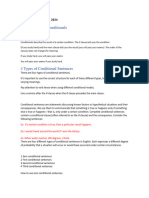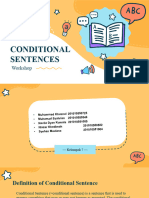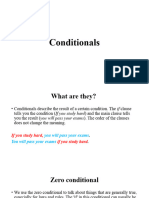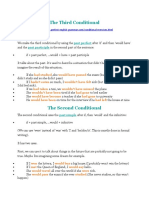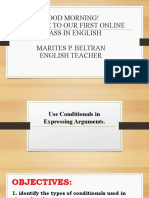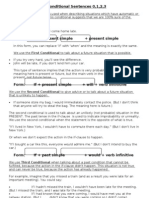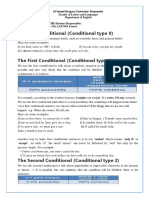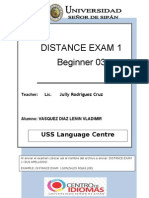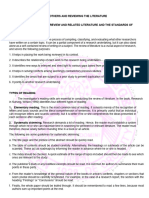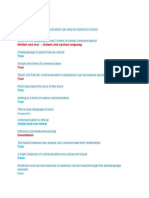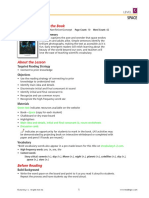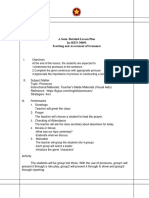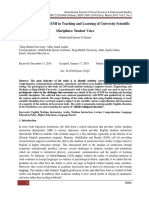0% found this document useful (0 votes)
18 views4 pagesConditional Sentences
The document explains the four types of conditional sentences: zero, first, second, and third conditionals, each serving different purposes in expressing facts, real possibilities, unreal situations, and past hypotheticals. It provides formulas and examples for each type, highlighting their structures and uses. Additionally, it clarifies the differences between the second and third conditionals regarding present/future versus past scenarios.
Uploaded by
Johniel RiveraCopyright
© © All Rights Reserved
We take content rights seriously. If you suspect this is your content, claim it here.
Available Formats
Download as DOCX, PDF, TXT or read online on Scribd
0% found this document useful (0 votes)
18 views4 pagesConditional Sentences
The document explains the four types of conditional sentences: zero, first, second, and third conditionals, each serving different purposes in expressing facts, real possibilities, unreal situations, and past hypotheticals. It provides formulas and examples for each type, highlighting their structures and uses. Additionally, it clarifies the differences between the second and third conditionals regarding present/future versus past scenarios.
Uploaded by
Johniel RiveraCopyright
© © All Rights Reserved
We take content rights seriously. If you suspect this is your content, claim it here.
Available Formats
Download as DOCX, PDF, TXT or read online on Scribd
/ 4












